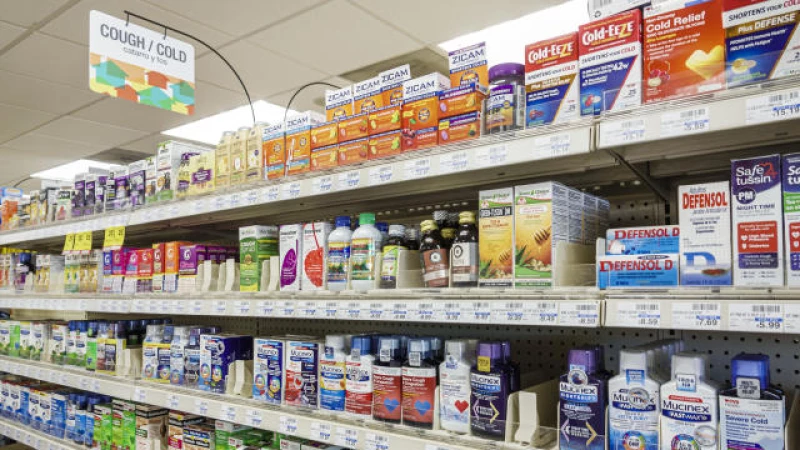As the year comes to a close, it's important to take a moment to review the remaining funds in your FSA account. An FSA, also known as a Flexible Spending Account, is a tax-free account that can be used to cover certain out-of-pocket healthcare expenses.
Typically, FSA balances expire at the end of the calendar year. However, depending on your employer, you may be able to roll over some funds into the next year.
"The maximum amount you can rollover is determined by the IRS and changes annually. For the upcoming year, the limit is set at $610," explains Charlene Rhinehart, a certified public accountant and personal finance editor at healthcare company GoodRx.
It's worth noting that your employer may have their own rules regarding rollovers, and they might allow a lesser amount to be carried over.
"Alternatively, some plans offer a grace period instead of rollovers, giving you extra time (usually 2.5 months) to spend the remaining funds in your account," advises Rhinehart. She suggests reaching out to your employer's benefits manager to confirm the available options for you.
A recent study conducted by the Employee Benefit Research Institute's FSA database revealed that when it comes to Flexible Spending Accounts (FSAs), 26% of plans offer a grace period, 42% allow individuals to rollover a certain amount, and 33% require any remaining funds to be forfeited at the end of the year.
What can you spend your FSA on?
If you have some money left in your FSA and are wondering how to use it, there are various products, classes, and programs that you can spend it on. Just make sure to keep your receipts for any out-of-pocket expenses, as you'll need them to request reimbursement from your plan administrator, advises Rhinehart.
Skincare: Eligible skincare items include over-the-counter acne treatments, broad spectrum sunscreen with SPF 15+, and hair regrowth medications. Botox for medical treatment may also be eligible, but it requires a letter of medical necessity signed by your doctor and a detailed receipt, according to the Federal Flexible Spending Account Program website.
For more information on eligible items and the supporting documents required, you can visit the IRS and other websites.
Eye, ear, and teeth care: In addition to eye exams and surgery, eyeglasses, contact lenses, and supplies are also eligible. You can even purchase supplies such as contact lens solutions, eye glass repair kits, and lens wipes.
FSA Eligible Expenses
For your teeth, orthodontia such as braces and retainers as well as mail-order clear dental aligners like Invisalign are eligible. So are supplies such as teeth grinding prevention devices and over-the-counter toothache reliever.
Eligible ear care items include both over-the-counter and prescribed hearing aids and batteries as well as over-the-counter ear drops.
Medicine cabinet essentials: Use your FSA balance to stock your medicine cabinet for the new year — items such as bandages, hand sanitizer and face masks are eligible. So are many over-the-counter medications, including:
- Allergy and sinus medicine
- Cold and flu medicine
- Cough drops, sore throat lozenges and cough syrup
- Antacids
- Aspirin or other pain relievers
- Antibiotic ointment
- First aid kits and emergency medical kits
Immunizations such as flu shots are also eligible. So is COVID testing, both in-person and at-home.
Health tools: Have any health and wellness devices you need to replace or want to upgrade? Some eligible options include blood pressure monitors, thermometers and even CPAP machines and supplies.
Menstrual products: Menstrual care products are eligible, including pads, tampons, cups and period underwear.
Professional services: You may have all your essential doctor and dental visits done for the year, but are there other services that could be beneficial? Physical therapy, massage therapy, chiropractor and acupuncture visits are also FSA eligible.
Pregnancy and family care: If you're pregnant or trying to conceive there are plenty of options you can purchase with your FSA account, from pregnancy tests to prenatal vitamins to breastfeeding and childbirth classes.
Not looking to get pregnant? Over-the-counter contraceptives like condoms as well as birth control pills (both over-the-counter and prescription) are FSA eligible.
Addiction treatment: A number of treatment programs are also FSA eligible, including alcoholism and drug addiction treatment as well as smoking cessation programs, drugs and patches.







